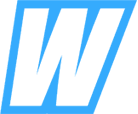Content Management System
We are here to help you with any web management and maintenance needs, but sometimes you just want to have the ability to do it yourself. So, we generally will provide a custom Content Management System to manage the content of your web site. Each CMS has functionality that is created specifically for your web site, so the learning curve for this service isn’t as steep as it is with most off-the-shelf CMS systems.
So what is a Content Management System?
A Content Management System (CMS) is a piece of software that runs on a server. Typically a database application, a CMS makes it easy to publish and administrate content.
Some basic features that are common to all CMSes:
Separation of content, structure and design
A CMS improves the lifecycle of your website for years to come. The “look and feel” of your site can be changed or relaunched, leaving existing content and page architecture untouched. No need to worry about copying and pasting content into another site, simply publish your new design and the CMS will pull the content into the new look.
Easy content production, no programming skills required
If you can use a computer, you can manage the content for your website. Using a graphical user interface, authors can simply create text, insert images and multimedia files, schedule content (and much more) to build and maintain a dynamic website.
Common advantages of a CMS:
- Decentralized maintenance.
Typically based on a common web browser. Edit anywhere, anytime. Bottlenecks removed. - Designed with non-technical content editors in mind.
People with average knowledge of word processing can create the content easily. No HTML skills required. - Configurable access restrictions.
Users are assigned roles and permissions that prevent them from touching content in which they are not authorized to change. - Consistency of design is preserved.
Because content is stored separate from design, the content from all authors is presented with the same, consistent design. - Navigation is automatically generated.
Menus are typically generated automatically based on the database content and links will not point to nonexistent pages. - Content is stored in a database.
Central storage means that content can be reused in many places on the website and formatted for multiple devices (web browser, mobile phone/WAP, PDA, printer). - Dynamic content.
Extensions like forums, polls, shopping carts, search engines, news management are typically drop-in modules. A good CMS also allows for truly user defined extensions.
Contact us today to get a no-obligation quote for your web design project.
